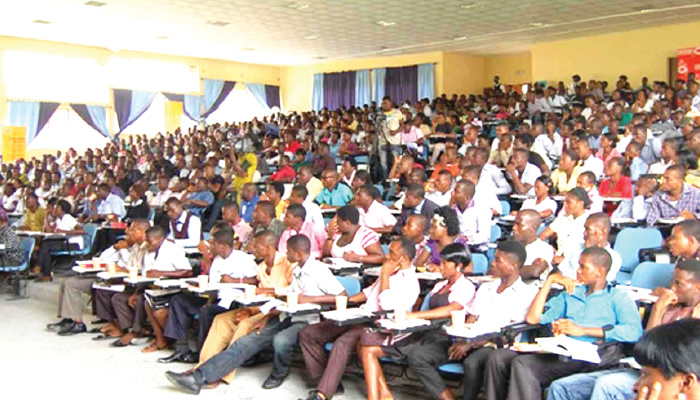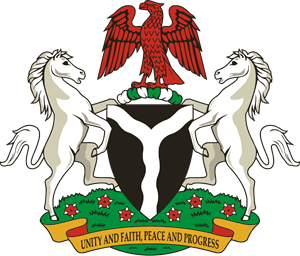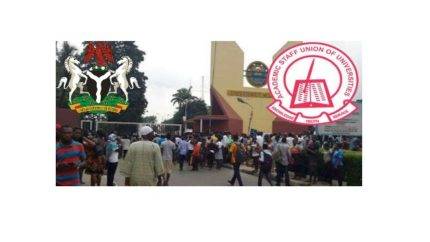The Academic Staff Union of Universities (ASUU), Bauchi Zone, has vehemently rejected the federal government’s students’ loan scheme, asserting that non-refundable grants should be provided to Nigerian students instead. The ASUU Bauchi Zonal Coordinator, Lazarus Maig-oro, expressed this stance during a scholarship program for indigent students held at the Abubakar Tafawa Balewa University (ATBU), Bauchi, on Saturday.
In his address, Maig-oro raised critical questions about the viability and consequences of the loan scheme, emphasizing the potential psychological trauma on students unable to access it. He argued that saddling students with significant loans, especially in the face of rising tuition fees, would negatively impact their academic performance and potentially force many to drop out.

Concerns Over Repayment and Access in ASUU’s Rejection of Students’ Loan Scheme
The Academic Staff Union of Universities Zonal Coordinator, Lazarus Maig-oro, has raised crucial concerns regarding the federal government’s students’ loan scheme, shedding light on the potential challenges related to repayment and access. One of the focal points of Maig-oro’s critique is the feasibility of repaying substantial loans and its adverse effects on the less privileged students within the university system. This highlights a critical aspect that could hinder the effectiveness of the loan scheme, as graduates burdened with significant debts may find themselves in a continuous cycle of financial stress, impacting their post-graduation prospects.
Furthermore, Maig-oro emphasized the stringent conditions accompanying the loan, pointing out that these could serve as barriers preventing many students from accessing the financial assistance they desperately need. The coordinator’s insights underscore the broader consequences, suggesting that such stringent conditions might contribute to an increase in the number of students unable to secure the loan. This, in turn, could potentially exacerbate the existing challenge of rising school dropouts, creating a concerning trend within the educational landscape that needs urgent attention and reconsideration by the government.

ASUU’s Call for Government Review
In a dedicated endeavor to tackle the escalating issue of student dropouts attributable to financial challenges, Lazarus Maig-oro, the spokesperson for ASUU Bauchi Zone, has revealed a proactive initiative. The union is systematically gathering data on students facing the imminent risk of abandoning their education due to financial constraints.
This strategic data collection is a pivotal step towards compelling the government to reassess its stance on the existing loan scheme and advocate for the substitution of loans with grants. In underlining Academic Staff Union of Universities unwavering commitment, Maig-oro emphasizes the critical role of collective action in navigating the daunting economic landscape for students, reinforcing the union’s dedication to safeguarding the future of university education.
ASUU’s call for a government review echoes a resounding commitment to addressing the stark economic realities confronting students. The union’s intention to utilize collected data as a persuasive tool underscores a methodical approach to advocate for policy change.
Lazarus Maig-oro’s emphasis on the urgent need for a collaborative effort amplifies the gravity of the situation, positioning ASUU as a proactive force in championing the cause of students facing financial hardships. This concerted effort not only signifies ASUU’s dedication but also serves as a clarion call for unified action to reshape policies and ensure a sustainable future for higher education in the face of economic challenges.
The Zonal Coordinator highlighted the government’s apparent abdication of its constitutional responsibility to fund Federal Universities. According to Maig-oro, leaving funding decisions to the discretion of university Governing Councils has led to an increase in school fees, contributing to a higher rate of students dropping out. He linked this issue to ASUU’s previous strike in 2022, emphasizing that the union’s call for increased funding was aimed at preventing the current challenges faced by students and parents.

Government Shift and Responsibility
In a critical analysis of the current state of funding for Federal Universities, the Zonal Coordinator sheds light on the government’s perceived neglect of its constitutional duty to financially support these educational institutions. Maig-oro’s observations underscore the concerning trend of devolving funding decisions to university Governing Councils, a practice that, according to him, has resulted in a surge in tuition fees
This shift has had tangible repercussions, notably contributing to a higher dropout rate among students. The Coordinator draws a poignant connection between this financial strain and the 2022 strike orchestrated by the Academic Staff Union of Universities , emphasizing that the union’s demand for increased funding serves as a preventative measure against the prevailing challenges faced by both students and parents.
In the broader context, Maig-oro’s insights illuminate the intricate interplay between governmental funding decisions and the overall stability of higher education institutions. By critically examining the repercussions of the government’s hands-off approach to funding Federal Universities, the Zonal Coordinator underscores the urgent need for a comprehensive reevaluation of financial policies.
Addressing these concerns and heeding ASUU’s call for increased funding could not only alleviate the financial burden on students and parents but also contribute to the long-term sustainability and effectiveness of the higher education system.
ASUU’s Scholarship for Indigent Students
ASUU Bauchi Zone takes a commendable stride in promoting accessibility to education by unveiling a proactive scholarship initiative for indigent students in 2023. With the announcement of 19 scholarships, this move demonstrates ASUU’s dedication to fostering educational opportunities for those facing financial constraints.
The initiative not only amplifies the union’s regional impact but also aligns with the broader mission of ASUU National, which has already awarded 12 scholarships across the six universities within the Bauchi Zone. By strategically integrating keywords related to “ASUU,” “scholarship initiative,” and “indigent students,” this content aims to enhance its discoverability in search engine rankings, providing relevant information to users interested in ASUU’s educational initiatives.
These scholarships stand as tangible proof of ASUU’s unwavering commitment to championing the cause of education in the region. By extending financial support to deserving students, the union actively addresses the economic hurdles that could otherwise hinder academic pursuits. This content not only highlights ASUU’s impactful scholarship program but also strategically incorporates key terms to improve its visibility, making it easily accessible to individuals seeking information on ASUU’s contributions to education and scholarship initiatives in the Bauchi Zone.
ASUU’s Historical Struggle for Government Support
The Zonal Coordinator recounted ASUU’s historical struggle for government support, emphasizing the eight-month strike in 2022 aimed at compelling the government to fulfill its obligations to fund university education. Maig-oro lamented the lack of collective support from parents and students during the strike, stating that the consequences of that failure are now being borne by students and parents alike.
This comprehensive report encapsulates ASUU Bauchi Zone’s firm rejection of the students’ loan scheme, its concerns and recommendations, as well as the proactive measures taken by the union to address the challenges faced by indigent students in the region.














